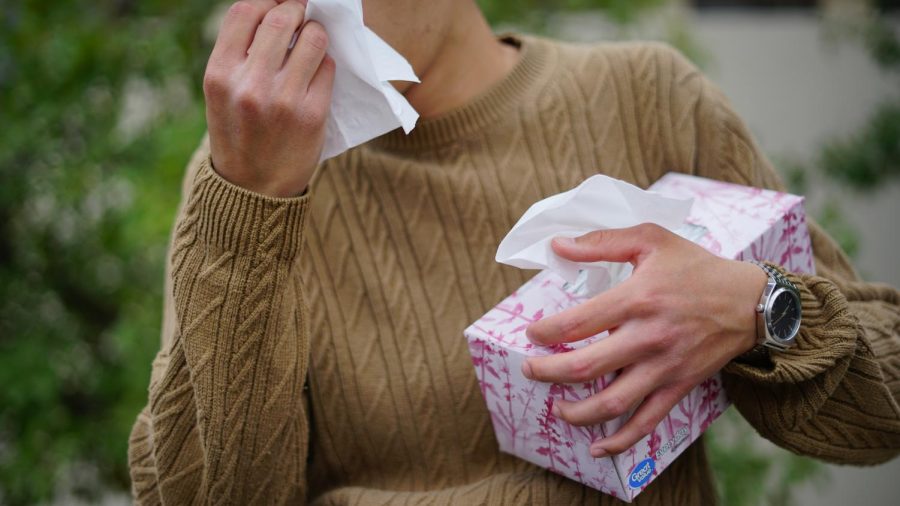Flu is a contagious respiratory illness caused by influenza viruses that infect the nose, throat and, sometimes, the lungs. It can cause severe illness and even lead to death in severe cases.
The best way to prevent flu is by getting a flu vaccine each year, according to the Centers for Disease Control and Prevention.
German Rosas-Acosta, an associate professor of biological sciences and the head of UTEP’s SUMO Influenza Laboratory for Cellular and Molecular Virology, talks about the types of influenza that are common in our region.
“There are two common viruses in our region; H3N2 and H1N1,” Rosas-Acosta said. “When we have H3N2 predominantly, that’s when you have the most aggressive flu season.”
It is difficult to predict and expect flu seasons from one year to another.
“Last year, we actually had a surprising flu season because we had two waves,” Rosas-Acosta said. “We had H1N1 first and then the H3N2 and that made it one of the longest flu seasons that we had here in el Paso in the last 10 years … it went from October to almost the end of April.”
Rosas-Acosta has been researching a cellular system called SUMOylation system, which regulates different things that happen between a cell and how the system is affected by an influenza infection.
“We were the first ones to report that this system is highly important for influenza infection and we have found more recently that, during a viral infection, the activity of this system is dramatically increased and this system could potentially constitute a good target for the development of new therapies against influenza,” Rosas-Acosta said.
Rosas-Acosta added that, in order to prevent the flu this upcoming season, people should get vaccinated as soon as they can.
The components of the virus are changing continuously and the virus you get one year is not going to be the same as the next.
“It’s super important to get vaccinated because, if you are close to people that are more likely to develop complications associated with influenza, you can affect them dramatically,” Rosas-Acosta said. He added that the most vulnerable populations are 5-year-old children and younger and people older than 65.
Other recommendations are to wash hands every time there is a chance. Also, people who get sick, should try to isolate themselves and not expose the infection to others.
“There are two types of vaccines that are going to be used this year: the injected and the nasal spray,” Rosas-Acosta said. “The nasal spray is typically used for children and it was not recommended last year but (it) has been developed so it can be used this year.”
Virginia Hernandez, office supervisor of UTEP’s Health and Wellness Center, mentioned that about 300 immunizations are given each season. Approximately the same number of students that get the vaccine each year at the Center.
Hernandez and Rosas-Acosta encourage students to approach to the different locations around campus where they can get vaccinated.
Students can get vaccinated at the Health and Wellness Center located in Union Building East. The Human Resources Administration will also host a moving flu clinic throughout the week of Oct. 14 with different stations on campus to get vaccinated.
- 9 a.m. to 7 p.m. Tuesday, Oct. 15, El Paso Natural Gas Conference Center
- 9 a.m. to 4 p.m. Wednesday, Oct. 16, Union Building East 3rd floor in the Tomas Rivera Conference Center
- 9 a.m. to 4 p.m. Thursday, Oct. 17, Blumberg Auditorium
- 10 a.m. to 1 p.m. Friday, Oct. 18, Facilities Services Conference Room 3120 near Sun Bowl Drive
- 2 p.m. to 4 p.m. Friday, Oct. 18, UTEP’s Campbell Building Commons Area 1st floor, near North Campbell Street
Maria Salette Ontiveros may be reached at [email protected]












